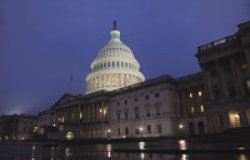The QDDR Can Advance U.S. Development, Diplomacy Objectives
The world today is different than ever before. Urban populations outnumber rural ones; emerging markets are increasing their presence in the global market, and national security concerns are no longer confined to nation-states but include lawless factions within them. How the United States and other nations choose to handle these and other global challenges will forever affect how they are perceived by the global community.
Released in December 2010 by the U.S. Department of State and U.S. Agency for International Development, the Quadrennial Diplomacy and Development Review (QDDR) is an effort to become more efficient, effective, and accountable in this changing world of growing instability. The QDDR highlights the importance of a new strategy for using diplomacy and development to address a wide range of global challenges.
A priority of the QDDR is to coordinate the vast breadth and depth of financial and intellectual resources within the U.S. government. With expertise ranging from rule of law to agriculture and energy to health, it will be imperative for the United States to align its resources to optimize their impact. The proper use of resources could facilitate the delivery of clean water to crisis-stricken regions quicker and more efficiently or even prevent a fragile state from falling into disarray.
Although coordination is important, it is also be vital to know which one or which combination—diplomacy, development, defense—is the answer. With ever-changing allies, enemies, and needs, the United States must go back to the drawing board to reestablish these three pillars of foreign policy while enhancing the effectiveness of its efforts.
Moving forward, the QDDR has the potential to improve the image of the United States and the effectiveness of its diplomacy and development efforts. For this initiative to succeed, it must receive proper financial and executive support, which may not come easily in a time of fiscal restraint. The cost of not acting effectively to help those who need it most in this world could, however, forever tarnish the U.S. standing in the global community.
